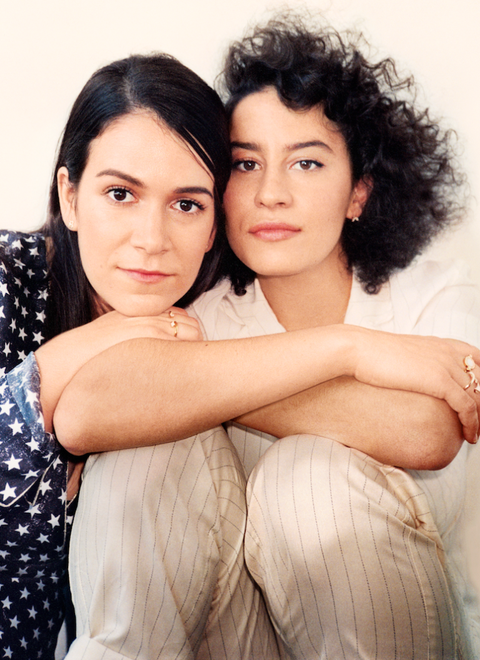|
xxxxxBorn in Williamsburg, Brooklyn, NY, Rachel was always the black sheep. Her parents, the descendants of Ashkenazi Jews who fled persecution in Europe, kept up an old family bodega. They weren't rich by any means, but they both worked hard to support their three children—of which Rachel was the eldest. From a young age, she learned that her role in the family was to guide her siblings and act as a tertiary caretaker; in other words, be a role model for her younger brothers. Yet, even as she tried her best to be a good sibling, she always fell short.
xxxxxAs a child, Rachel experienced difficulties in interacting with others. Perplexed by the complex inner-workings of others' feelings and motivations, she could never understand people. The most she could do was try and stop questioning "why" and "what", and instead practice being agreeable—normal.
xxxxxHer parents were flooded with work. She had to tend to her brothers and make sure they got ready for school and help them with their homework and warm up the leftovers her mother made for dinner when they weren't there.
xxxxxShe excelled in school and many of her teachers learned to utilize her unique strengths, such as the way she hyper-fixated on tasks that engaged and challenged her. Report cards often filed in with comments such as "great learner, but very quiet and reserved" or "wonderful to have in the classroom, withdrawn from others her age". She knew about this. She eavesdropped on her parents' frequent late-night discussions regarding her reclusive nature. She always caught her siblings' friends asking about her or joking about how she never had any of her own friends over. The urge to lash out was strong, but the need to be acceptable was stronger. And so, Rachel kept it together for the majority of her childhood. Always suspicious of others when they got close to her—questioning whether they liked her because she only agreed with them or because she had the answers to an assignment.
xxxxxCome puberty and the manifestation of her abilities, Rachel noticed that she became more distracted. Restless as she was, she poured her building frustration into schoolwork and extra-curricular activities. That was until her first run-in with another mutant.
xxxxxShe couldn't describe the feeling she felt around Janet. She knew she was different, but it wasn't until they started talking with one another that she realized that they weren't normal. From then on, they became friends. More than friends, actually. Together they felt a little less alone in a world that saw them as abnormalities and novelties—looking at them like how children looked at sea monkies floating around in a tank.
xxxxxThey had a falling out of course. Janet didn't want to spend her life pretending she was a normal person living an unremarkable existence. Rachel wanted nothing more than to get on with her life and fulfill the expectations of her parents—be successful and remarkable in a "normal" kind of way. With that, the two went their separate ways. Janet went off the grid after graduation.
xxxxxAs for Rachel, she clawed her way through college to keep her GPA up. At one point, she even pegged someone else for plagiarism to get an edge in one of her classes.
xxxxxHer numerous scholarships earned throughout the entirety of her high school career demanded her complete and utter dedication. She majored in psychology before attending law school and soon scored herself a career with a firm in Manhattan. A promising lawyer, a savant at finding legal loopholes, and a hard-worker dedicated to her clients, Rachel fit perfectly into the mold of a corporate powerhouse—stepping on others and tearing apart her competition included. She eventually learned how to channel her venom into passion, using her vigor and pent-up anger to win cases with biting oratory.
xxxxxNowadays, she's well-off. Most of the cases she handles involve covering up seedy corporate scandals.
|
